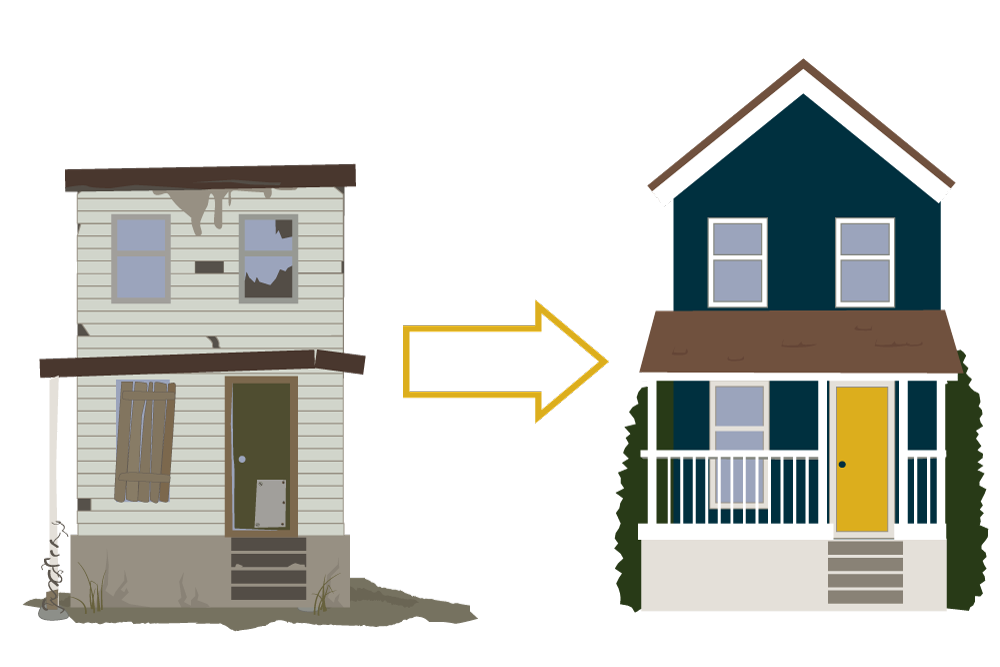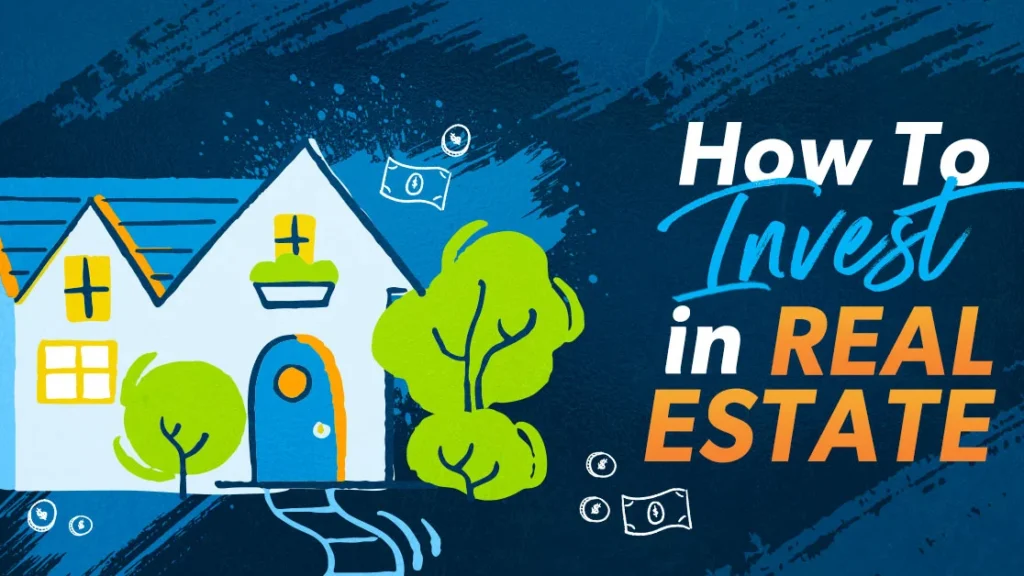
Real estate has long been considered one of the most reliable and profitable ways to build wealth. As the sixth dimension of income in our series, real estate offers opportunities to generate consistent income, achieve capital appreciation, and diversify your financial portfolio. Whether you’re a seasoned investor or just starting out, real estate can provide both short-term cash flow and long-term financial stability.
In this comprehensive guide, we’ll explore the various types of real estate investments, dive into strategies for generating halal income, and discuss pro tips for navigating this potentially lucrative industry—all while adhering to Islamic principles. Real estate is a tangible asset that, when managed correctly, can lead to financial independence and generational wealth.
Why Real Estate is a Powerful Income Source

Real estate offers a unique set of benefits that make it a powerful source of income. Here are some key reasons why real estate should be part of your financial strategy:
- Tangible Asset: Unlike stocks or bonds, real estate is a physical asset that can provide security and tangible value.
- Steady Cash Flow: Rental income from properties provides a consistent stream of income over time.
- Appreciation Potential: Real estate often appreciates in value over time, especially in growing markets.
- Leverage: With real estate, you can use other people’s money (through Islamic-compliant financing) to acquire assets, allowing you to grow your portfolio without massive upfront capital.
- Tax Advantages: Many countries offer tax benefits for property investors, such as deductions for mortgage interest, property taxes, and depreciation.
What Makes Real Estate Halal?

In Islam, certain forms of wealth generation are prohibited, including interest-based (riba) transactions, gambling (maysir), and excessive uncertainty (gharar). Fortunately, real estate investments can be halal if structured correctly.
Here’s how real estate can align with Islamic principles:
- No Interest (Riba): Islamic financing methods like Murabaha (cost-plus financing) or Ijara (lease-to-own) are used to avoid paying or receiving interest.
- No Speculation or Uncertainty: Real estate investments are grounded in tangible assets, avoiding the speculative nature of other markets.
- Ethical Practices: Ensure that the property is not being used for haram activities (such as gambling, alcohol, etc.), which would render the investment non-compliant.
Types of Real Estate Investments

There are several ways to invest in real estate, each offering different levels of involvement, risk, and return. Let’s break them down:
1. Residential Real Estate

Residential properties are homes where individuals or families live. Investing in residential real estate involves purchasing properties like single-family homes, apartments, and townhouses to rent out or sell for a profit.
Benefits:
- Steady Rental Income: Renting out homes provides consistent, reliable monthly income.
- Long-Term Appreciation: Residential properties typically increase in value over time, allowing you to benefit from capital gains.
Pro Tips:
- Location, Location, Location: Always prioritize properties in growing or well-established areas. Proximity to schools, shopping centers, and public transport can greatly influence property values.
- Tenant Screening: Make sure to thoroughly screen tenants to minimize risks of non-payment or property damage.
2. Commercial Real Estate

Commercial real estate involves properties used for business purposes, such as office buildings, retail spaces, and warehouses. This type of real estate often requires larger capital but can offer higher returns.
Benefits:
- Higher Returns: Commercial leases tend to be more lucrative than residential ones, offering a stronger cash flow.
- Long-Term Leases: Businesses often sign long-term leases, providing more stability than residential rentals.
Pro Tips:
- Understand the Market: Commercial real estate is closely tied to economic performance. Research the local economy, job market, and demand for business space before investing.
- Invest in Growing Industries: Focus on industries or sectors that are expanding, such as healthcare facilities or e-commerce warehouses.
3. Real Estate Development

Real estate development involves purchasing land and constructing residential or commercial properties from scratch. While it can be more complex, development offers the potential for significant profit, especially in growing urban areas.
Benefits:
- High Profit Potential: If successful, developing a property can yield higher returns compared to simply buying and selling existing properties.
- Control Over the Asset: You have complete control over the design, construction, and features of the property, which can appeal to certain buyers or tenants.
Pro Tips:
- Build Relationships with Contractors: The success of real estate development depends on the quality of construction. Build strong relationships with trusted contractors and architects.
- Start Small: If you’re new to real estate development, start with smaller projects before moving on to larger-scale developments.
4. Real Estate Investment Trusts (REITs)

For those who want exposure to real estate without the hassle of owning or managing properties, Real Estate Investment Trusts (REITs) are an attractive option. A REIT is a company that owns, operates, or finances income-generating real estate. By investing in a REIT, you gain access to a diversified portfolio of real estate assets.
Benefits:
- Passive Income: REITs offer dividends based on the income generated from the underlying real estate, providing a passive income stream.
- Diversification: Investing in a REIT allows you to diversify your real estate exposure without owning physical properties.
Pro Tips:
- Invest in Shariah-Compliant REITs: Some REITs avoid interest-based financing and focus on halal sectors. Look for REITs that comply with Islamic principles.
- Research the Portfolio: Always review the properties and sectors that the REIT invests in to ensure they align with your investment goals.
5. House Flipping

House flipping involves buying properties, making renovations, and selling them at a higher price. It’s a more hands-on approach to real estate investing and can be highly profitable if done correctly.
Benefits:
- Quick Profits: Flipping properties allows you to realize profits in a relatively short amount of time, often within a few months.
- Flexibility: You can decide the level of renovation required and when to sell, giving you greater control over your investment.
Pro Tips:
- Know Your Market: Successful house flipping requires deep knowledge of the local market. Research the demand for renovated homes and focus on areas with growing property values.
- Budget Carefully: Always have a clear renovation budget and timeline. Overestimating costs can eat into your profits.
How to Get Started in Real Estate Investing

Whether you’re interested in buying rental properties or investing in commercial real estate, here’s a step-by-step guide to get you started:
1. Educate Yourself
Before diving into real estate, take the time to learn about the market, the different types of properties, and the financing options available. Attend seminars, read books, and consult with real estate experts.
2. Create a Financial Plan
Determine how much capital you have to invest and what kind of returns you expect. Consider your long-term goals and how real estate fits into your broader financial strategy.
3. Choose the Right Investment Type
Based on your financial plan and goals, choose the type of real estate investment that suits you best. If you prefer passive income, residential rentals or REITs might be the right fit. If you’re looking for higher returns, you could explore house flipping or commercial real estate.
4. Start Small
If you’re new to real estate, it’s wise to start small. Buy a single-family home or invest in a local REIT before scaling up to larger properties or commercial real estate.
5. Leverage Islamic Financing
Use Shariah-compliant financing options like Murabaha or Ijara to fund your real estate purchases. Avoid interest-based loans to ensure your investments are halal.
Real estate is one of the most effective ways to build long-term wealth and secure financial independence. Whether you choose to invest in residential properties, commercial real estate, or halal REITs, there are numerous opportunities to generate income and grow your portfolio.
Kamran tariq
By sticking to Islamic principles, using halal financing options, and making informed investment decisions, real estate can become a key dimension of your income strategy. With over 4 years of experience in the six dimensions of income, I can confidently say that real estate is one of the most stable and rewarding avenues to explore.
Incorporate real estate into your financial plan today, and take another step toward financial independence and prosperity!

Leave a Reply